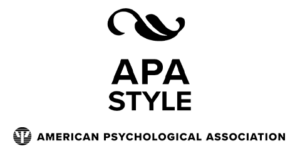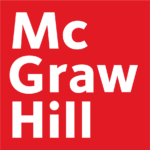Jessica Reyman, PhD Candidate, University of Minnesota
Assistant Chair, CCCC Intellectual Property Caucus
CASE OVERVIEW
BMG Music v. Gonzalez is an important case in a series of high-profile peer-to-peer file sharing cases in the past several years (including MGM Studios v. Grokster, discussed above) because it is the first in which the Court addresses a lawsuit against an actual individual user of peer-to-peer file sharing technology rather than a technology company. This case involved a copyright infringement claim against a 29-year-old woman, Cecilia Gonzalez, who downloaded over 1,370 copyrighted songs within the first few weeks of getting a broadband Internet connection in her home. Gonzalez argued that her use of the songs was a “fair use” (under Section 107 of the U.S. Copyright Act). She said she was just sampling music to determine which songs she would like to purchase. While Gonzalez was able to show that she purchased discs containing some songs she downloaded, she has never owned copies of at lest 30 of the songs. BMG music sought damages based on those 30 songs.
The 7th Circuit Court, ruling in BMG’s favor, did not agree that Gonzalez’s downloading of songs with the purpose of “sampling” qualified as a fair use. After conducting a four factor fair use analysis (based on the purpose of the use, the nature of the work, the amount and substantiality of the work, and the market effect of the use), the Court concluded that Gonzalez’s use of the songs was not a fair use. It was argued that her fair use defense failed on two counts: first, the purpose of her use was not nonprofit and, second, she downloaded and kept entire songs, “for which, as with poetry, copying of more than a couplet or two is deemed excessive.” In addition, the Court made a distinction between the case and the 1984 Sony-Betamax case, arguing that “[t]he premise of Betamax is that the broadcast was licensed for one transmission and thus one viewing. Betamax held that shifting the time of this single viewing is fair use. The files that Gonzalez obtained, by contrast, were posted in violation of copyright law; there was no license covering a single transmission or hearing – and, to repeat.” In other words, according to this narrow reading of Sony, because Gonzalez did not erase the songs from her computer after listening to them once the downloaded songs could be viewed as a substitute for purchasing the songs.
Gonzalez further argued that her downloading activity might be perceived as “good advertising” that would lead to increased music sales. The Court rejected this argument as well, noting that there are existing markets for introducing potential consumers to music, including radio and sampling offered by licensed Internet sellers such as the iTunes Music store. These sellers pay royalty fees for the samples, and only use them with the copyright holders’ permission. In addition, the Court argued, these “previews share the feature of evanescence; if a listener decides not to buy (or stops paying the rental fee), no copy remains behind.”
Based on the reasoning above, the Court ordered Gonzalez to pay $22,500 in damages to BMG Music. Gonzalez reported to the Court that “she has learned her lesson, has dropped her broadband access to the Internet, and is unlikely to download copyrighted material again.”
IMPLICATIONS FOR RHETORIC AND COMPOSITION TEACHING AND RESEARCH
One significant implication arising from BMG Music v. Gonzalez is its potential to place further limitations on what constitutes fair use. Fair use is an essential exemption to the exclusive rights of copyright holders for writing educators and researchers. It limits content owners’ rights in ways that allow uses related to instructional, scholarly, and artistic work, such as making classroom copies, quoting from material, building on existing studies and works, making parodies, and creating works of commentary and criticism. This decision has the potential to eliminate the use of a fair use defense for peer-to-peer file sharing activity altogether. While the ruling establishes that Gonzalez’s use was not a fair use, it isn’t clear what downloading activities would qualify as a fair use, if any. What if you already owned a legitimate copy of the work you downloaded? What if you erased the material from your computer after use? The decision leaves a window of opportunity open for these potential uses, but the Recording Industry Association of America is already doing what it can to close that window (the RIAA now arguing that copying files from a purchased CD is not protected under fair use).
In addition, the ruling supports a larger trend on campuses toward what might be called a “permissions culture.” The ruling considers potential markets for digital works as part of the fair use analysis and suggests that if a use competes with such markets then it is not a fair use. As digital technology makes possible wide distribution of copyrighted works, it also makes possible new markets for restricting access through licensing mechanisms. With the proliferation of new markets for digital works, University officials have become increasingly wary of potential lawsuits for the use of digital versions of copyrighted works in teaching and research. It is now a widely accepted belief that the potential risks of copyright infringement lawsuits can (and should) be mitigated by paying royalties and engaging in the permissions market. In fact, paying royalties for using portions of copyrighted works in online coursepacks, copies posted on class WebCT and other course management sites, and in Internet publications has become the default model on many campuses, without consideration of whether individual uses may qualify as fair uses. We can see evidence of this trend in the recent release of a service from the course management software, Blackboard, that automates the permission process for any copyrighted works shared on course websites. Unfortunately, seeking permissions for educational or nonprofit uses often results in paying hefty royalties or, at times, denial to use the work at all.
Finally, the decision in BMG Music v. Gonzalez supports a common misunderstanding in the larger, ongoing debate surrounding copyright law that copyright infringement constitutes theft. In the oral argument, Justice Easterbrook asked how this case differs from shoplifting a book from Barnes & Noble, implying that it doesn’t. And in the judicial opinion, he reiterates that “music downloaded for free from the Internet is a close substitute for purchased music.” This analogy is misleading because it conflates stealing physical property with copying and using copyrighted works. The notion of “theft of intellectual property” fails to acknowledge the rights that users do possess under copyright law, and obscures the benefits that come with copying and distributing copyrighted materials. It suggests that intellectual property holds value only in the creation of exclusivity and the rewards granted to authors. Instead, the rhetoric of the debate needs to openly acknowledge the way in which this pervasive analogy obscures the goal of copyright law to provide incentive for future works and to constantly replenish a very valuable public domain.
LOOKING AHEAD
The decision in BMG Music v. Gonzalez sends a clear message to individual file sharers that they will not likely be able to successfully challenge the infringement claims filed by content owners, at least not with a fair use defense. As a result, individual users weighing potential risks may choose to discontinue use of peer-to-peer file sharing networks, despite their potential noninfringing uses, or, like Gonzalez, drop their broadband access to the Internet altogether. As scholars and educators, we know that there are instances in which downloading digital copies of copyrighted works can be a fair use. And we likely cringe when hearing that cases like this encourage people to disconnect their Internet connections. Unfortunately, this ruling supports the perception, already held by many individuals in our classrooms and on our campuses, that nothing can be downloaded for free for any purpose and that fair use is a meaningless defense, particularly in digital contexts.
The recording and movie industries are doing what they can to communicate the powerful, though deceptive, message that all peer-to-peer file sharing is stealing. Two decisions this year alone, MGM Studios v. Grokster and BMG Music v. Gonzalez, only provide fodder for the inflated rhetoric of the content industry. As scholars of rhetoric, writing, and language, I believe that we can play key roles in the ongoing public debate surrounding these issues. We need to better articulate our defenses of peer-to-peer file sharing for legitimate purposes, and of our fair use rights more generally. We can begin in our classrooms, discussing with students the ways in which peer-to-peer file sharing technologies may prove useful to our research and writing activities. In our discussions with campus copyright officials, we can assert fair use defenses when they apply to our regular work activities. And among higher-level university administrators, we can raise the visibility of the damages caused by the “permissions culture” that has driven recent copyright policy-development and best practices. Finally, it is our responsibility to move these discussions into the high-profile public debate about peer-to-peer file sharing, articulating more clearly, perhaps in the model of this paper, what is at stake in recent intellectual property developments. We should work on all of these fronts to protect the intellectual property rights that are so important to teaching and scholarly activity in rhetoric and composition studies.
Download BMG Music v. Gonzalez Opinion
http://www.ca7.uscourts.gov/tmp/RG0KJJF5.pdf
No. 05-1314 (7th Cir. Dec. 9, 2005)








